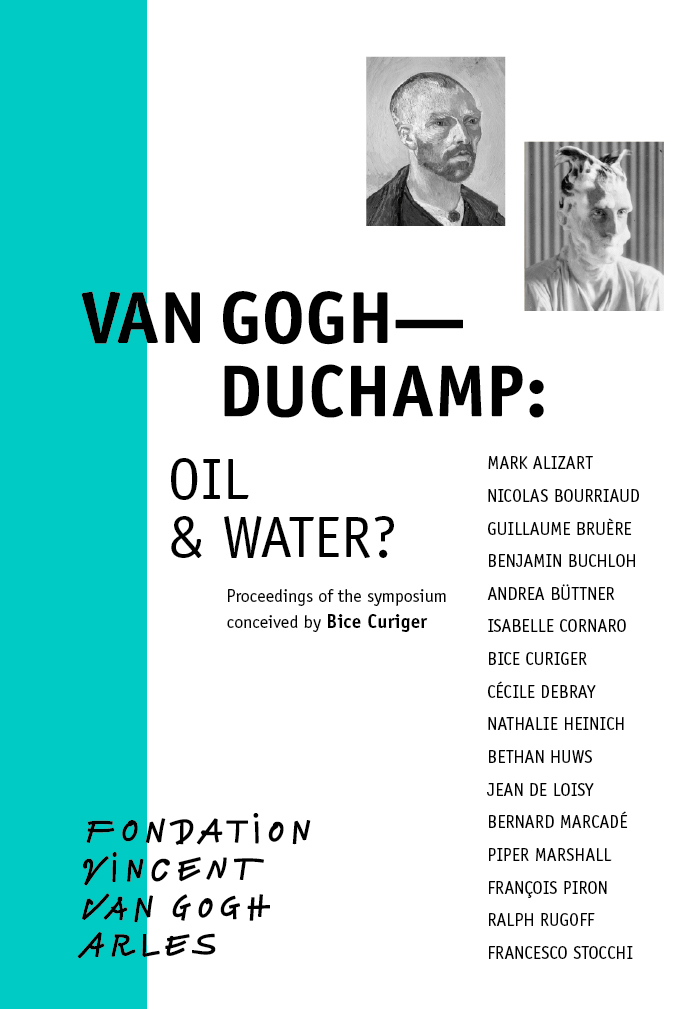Van Gogh and Duchamp: two names, two monuments in the history of twentieth-century art, both of whom seem to be mutually charged with the intensity of a magnet. Or would this be valid only for those imprisoned in clichés?
Conceptual art has established itself up as an antidote to expressiveness. For several decades already, excessive and exalted subjectivity in art has been rejected and denied. But today both emotion and immediacy are seditiously reappearing.
Are the names of Van Gogh and Duchamp synonyms for “hot” and “cold”? One standing for existential agitation, the other for intellectual sovereignty? One for popular (accessible), the other for sophisticated (elitist)? One for “painting”, the other for “anti-painting”? One for pictorial spaces saturated with energy, the other for fetishized objects manipulated with strategic detachment?
“Van Gogh–Duchamp: Oil & Water?” is the first of a series of symposiums devoted to Vincent van Gogh. The proceedings of this colloquium—devised and held in Arles—present contributors’ talks and discussions, juxtaposing historical, cultural and sociological positions, as well as determined artistic approaches and practices. The rich diversity of the iconographic documentation of these proceedings reflects the magnetic attraction of these two great names.




